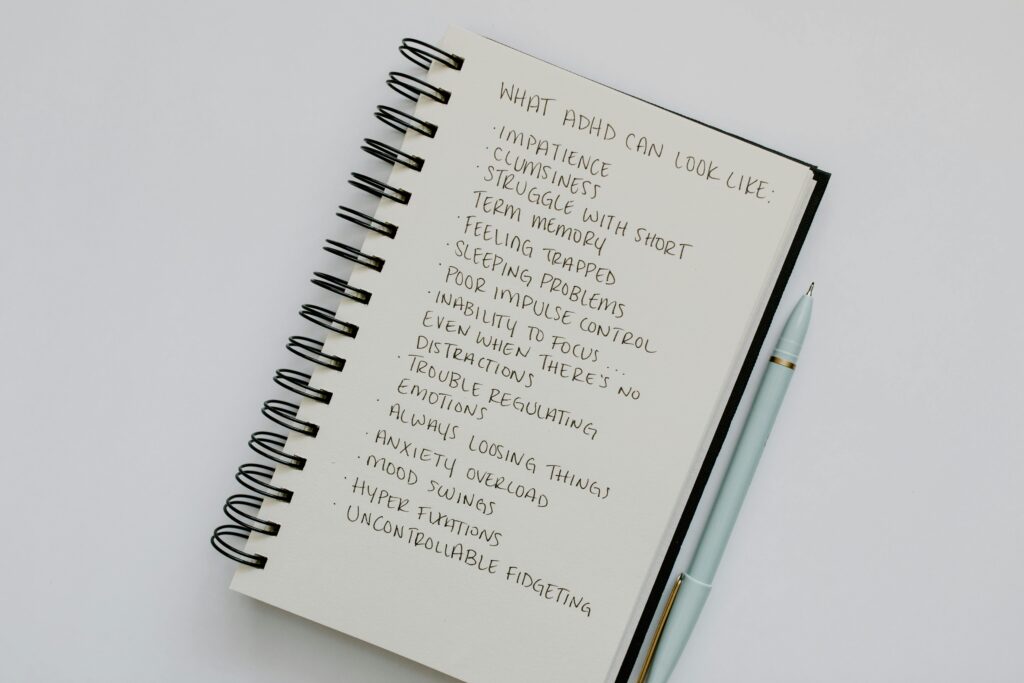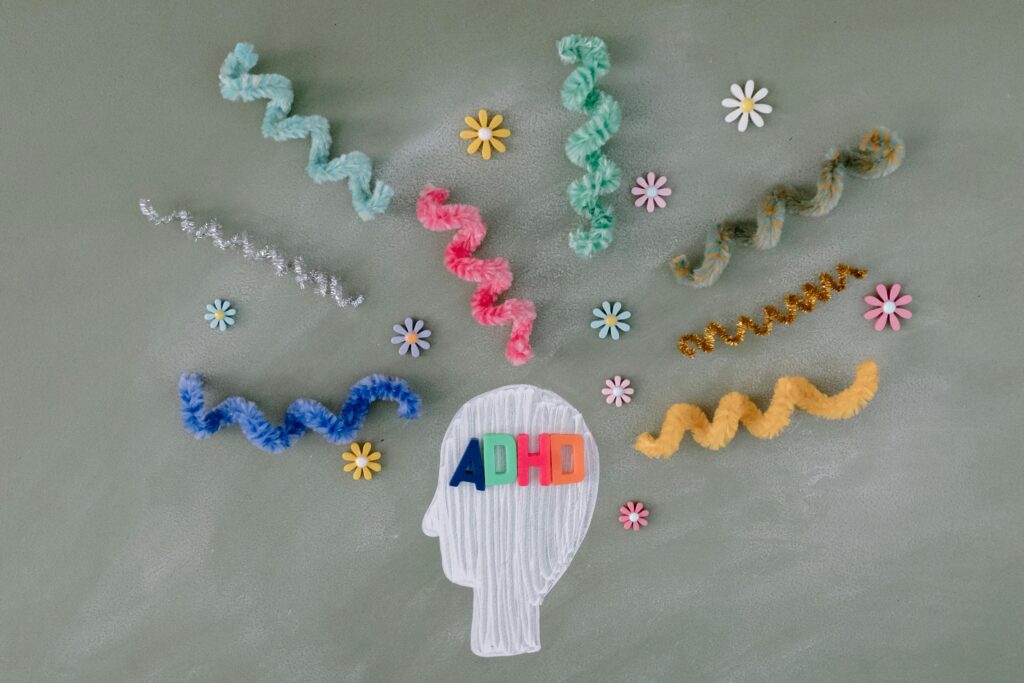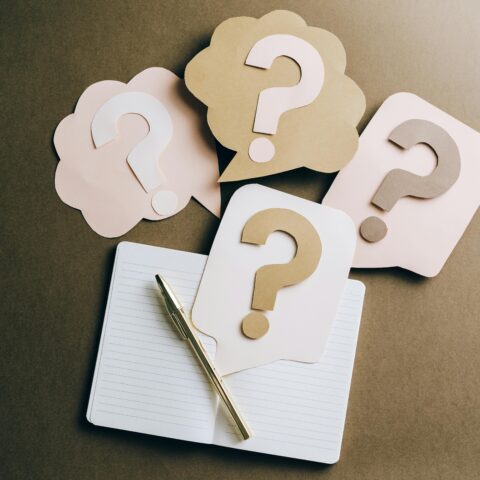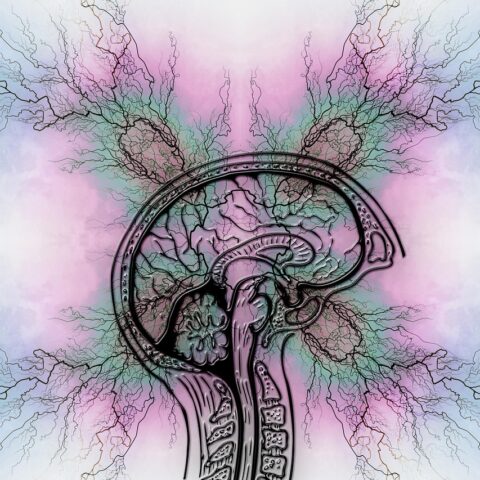Struggling to focus? These honest, Study Tips for People with ADHD That Actually Work blend brain hacks, real talk, and unconventional tricks that finally work for neurodivergent brains.
🧠 This is Your Guide to ADHD Study Tips

Here’s the truth:
Most “study hacks” online feel like they were written by robots. Or people with 17 color-coded tabs and the executive function of a Navy SEAL.
If you’re neurodivergent like me, that stuff doesn’t stick.
You sit down to study, and your brain… doesn’t.
Suddenly you’re cleaning your entire bathroom, deep-diving Mongolian throat singing, or crying because your pen ran out of ink and that was apparently your last straw.
Sound familiar?
Cool. You’re not broken. You’re just ADHD-brained, and you need a totally different toolkit.
This isn’t your typical “just make a to-do list” advice.
These are study tips for people with ADHD — written by someone who’s lived the chaos, failed all the systems, and slowly figured out what actually helps.
Let’s dive in.
Table of Contents
🔄 1. Start Ugly, Start Messy, Start Now
One of the worst traps for ADHD folks?
Waiting for the “right” moment.
“I’ll start after I clean my desk.”
“Once I make a perfect study plan, then I’ll begin.”
“I’ll just scroll for 10 minutes to calm my nerves…”
You don’t need a vibe.
You don’t need clarity.
You just need momentum.
🧩 Try This:
- Grab a random piece of paper and brain-dump the first thing that comes to mind about your topic.
- Start with the easiest, most doable thing — even if it’s opening a doc and writing one sentence.
- Tell yourself: “I’m just going to do 5 minutes of crap work.” Then trick yourself into staying longer.
ADHD brains don’t run on pressure.
They run on inertia. Once you’re moving, it’s easier to keep moving.
🧰 2. Build a Ritual, Not a Schedule
Time-blindness is real.
Traditional study schedules usually fall apart for us within 3 days.
Instead, build a ritual that tells your brain:
“Hey, we’re about to focus now.”
💡 Example ADHD Study Ritual:
- Light a specific candle or incense
- Put on a lo-fi playlist you only use when working
- Take 3 deep breaths or stretch for 20 seconds
- Open your notes or start a timer
- Say: “It’s study time. I don’t have to finish — just start.”
This trains your brain through context cues — which are more effective than time-based plans.
🧠 According to ADDitude Magazine, sensory rituals help ADHD brains shift into “task mode” faster than pure willpower.
📦 3. Break Everything into Ridiculously Small Tasks
ADHD brains freeze when a task feels vague or overwhelming.
“Write the essay” = panic.
“Write one bad paragraph” = doable.
🔨 Turn this:
- “Study chapter 3”
Into this:
- Open PDF
- Read one section
- Highlight 3 facts
- Write 2-sentence summary
- Make 1 flashcard
- Take 5-minute break
- Repeat
Every micro-task should feel like a checkbox dopamine hit.
The smaller the step, the more likely you are to take it.
🎯 4. Use Dopamine-Pairing (a.k.a. “Temptation Bundling”)
You don’t need to remove distractions — you need to hijack them.
Pair your most avoided study tasks with something you love, so your brain sees a reason to cooperate.
🔁 Try:
- Listening to your favorite video game soundtrack only while reviewing notes
- Drinking a special “study-only” drink like iced coffee, matcha, or a fizzy soda
- Using Focusmate or Study With Me YouTube videos for body-doubling support
- Letting yourself watch trashy YouTube videos only after 20 minutes of study
ADHD isn’t a motivation issue. It’s a dopamine economy.
You’re allowed to make deals with your brain.
🧍♀️ 5. Make It Physical (Because Thinking Isn’t Always Enough)
Mental to-do lists disappear.
Digital notes? Also disappear.
If it’s not visible and physical, ADHD brains often forget it exists.
🪄 Try These:
- Study Zones: Have one specific chair or table you use only for studying. No distractions allowed there — make it your “focus bubble.”
- Object Permanence Bins: Keep all your study supplies in a clear bin within eyesight. Out of sight = out of mind.
- Wall-Sized Task Boards: Use giant sticky notes or whiteboards. Visually crossing things off builds momentum.
- Fidget while reading: It sounds backward, but research shows small movements help with attention regulation.
Your brain is wired for motion, sensation, and stimulus.
If you think best while pacing or chewing gum — lean in.
🤖 6. “Cheat” with Tools Designed for ADHD Brains
ADHD isn’t a moral failing.
It’s a wiring difference — and that means you’re allowed to adapt the system to you, not the other way around.
🧠 Favorite Tools:
- Text-to-speech readers like Speechify help if you hate reading
- Note summarizers like ChatGPT or TLDR This for breaking down dense content
- Brain dumps with voice-to-text — speak your thoughts aloud and transcribe
- Trello or Notion to organize your chaos (but don’t over-customize)
- Gamified study apps like Study Bunny or Habitica
The best way to study with ADHD is whatever works, not what looks impressive.
❤️🩹 7. Plan for Failure (Then Keep Going Anyway)
You will flake sometimes.
You’ll stare at the wall. You’ll scroll for 2 hours.
You’ll say “I’m gonna study at 3” and then it’s midnight.
That doesn’t mean you failed.
It means you’re human.
💬 Instead of beating yourself up, ask:
- “What blocked me today?”
- “Did I need rest or was I just overwhelmed?”
- “What could I make easier tomorrow?”
The best ADHD study tip of all? Compassion.
Not toxic positivity — just permission to try again without shame.
🧪 Mini Quiz: How Do You Study Best with ADHD?
(Not medical advice — just a self-guided reflection tool for insight and awareness.)
- Do you work best in total silence or with ambient noise/music?
- Do long tasks overwhelm you or motivate you?
- Do you retain more from writing, speaking, drawing, or doing?
- What distractions hijack your time the most? (Phone? People? Noise?)
- What times of day do you feel naturally focused — even for 10 mins?
- Which study tools have helped you a little, even if inconsistently?
Use your answers to customize everything. There’s no one ADHD brain — there’s yours.
🔗 External Reading
To ground this in research and resources, here are two reliable, expert-backed sources:
- CHADD – Children and Adults with ADHD
They offer toolkits, tips, and time-management guides specifically for ADHD adults. - Healthline – Studying With ADHD: 20 Tips for Success
Solid, practical advice with medical reviewer oversight.
✅ Recap: ADHD-Friendly Study Tips That Actually Help

Here’s the summary:
- Start before you’re “ready”
- Create a ritual instead of a rigid schedule
- Break tasks into atomic chunks
- Use dopamine-pairing & fidget-friendly habits
- Make study tools visible, physical, or gamified
- Accept the flake-outs and return with compassion
You’re not lazy. You’re not doomed. You just need your own way in.
🙋 FAQ: Study Tips for People With ADHD
1. What’s the best way to study with ADHD?
Chunk your tasks. Make them small. Layer them with rewards. Use rituals to signal focus.
2. Is Pomodoro good for ADHD?
Sometimes — but not always. If the timer makes you anxious, modify it. Try 10-minute blocks or open-ended sessions.
3. How can I stop getting distracted so fast?
Use body doubling (Study With Me videos), visual timers, or dopamine-paired rewards.
4. Why do I forget everything I study?
You likely need to encode the info using different modalities: speak it aloud, draw it, or teach it to someone.
5. Can ADHD meds help with studying?
Yes, for many people they’re life-changing. But study systems still matter alongside them.
6. How do I fight procrastination with ADHD?
Make the task feel shorter and easier than it is. “Just do 3 minutes” works better than “finish the whole chapter.”
7. What’s a good ADHD-friendly study environment?
One with clear boundaries, low clutter, ambient noise, and a consistent cue that tells your brain: it’s focus time.
8. How often should I take breaks?
Every 20–30 minutes is ideal. Use breaks to move your body, not scroll aimlessly.
9. Is multitasking okay?
No — ADHD brains think they multitask well but often lose info. Focused sprints > scattered hours.
10. How can I stay motivated during long study periods?
Inject novelty: new location, new music, new method. ADHD brains crave stimulation.
11. Are fidget toys legit or just a trend?
They help many people regulate sensory needs and stay focused. Try it and see.
12. What if I still feel like nothing works?
It might take trial and error — and it’s okay to ask for support from therapists, coaches, or ADHD communities.
✍️ About ADHD Goat
ADHD Goat is a brutally honest blog by Jenny Mirah, a neurodivergent writer navigating mental health, identity, and executive dysfunction — one meltdown at a time.
We don’t do fake positivity. We do real experiences and a little comfort in the chaos.
🔗 Read more at: adhdgoat.com/about-us
📮 Want to Request a Topic?
We love weird questions, raw stories, and “is it just me?” spirals.
💌 Send your idea to: adhdgoat.com/contact








